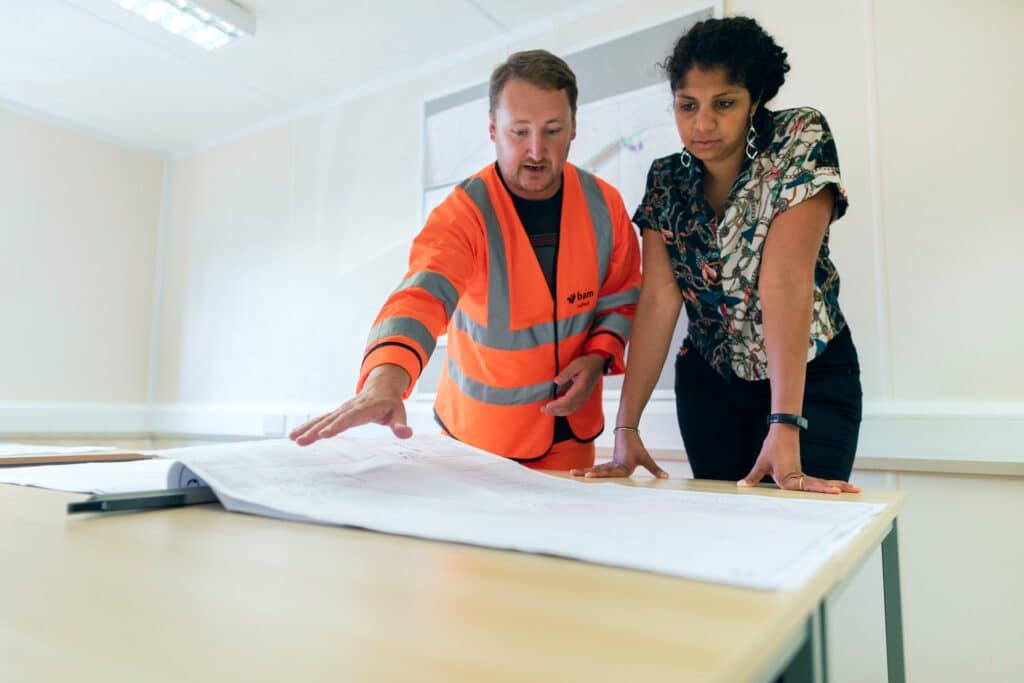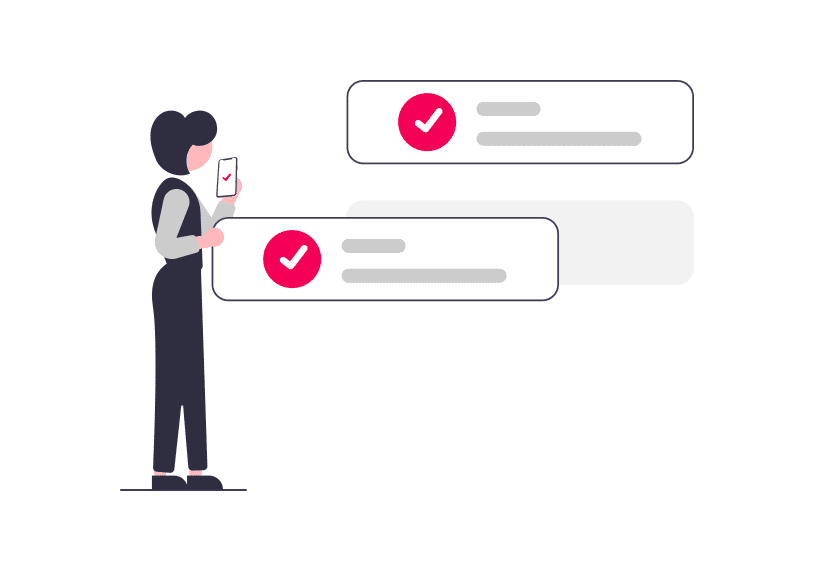A skilled and adept general contractor plays a pivotal role in the growth and success of any construction project. Serving as the cornerstone of project management, a general contractor orchestrates every facet of the construction process, ensuring that timelines are met, resources are optimized, and quality remains uncompromised. From residential homes to commercial structures, their expertise is the linchpin that brings dreams to life.
In this comprehensive guide, we will delve into the world of general contractors, exploring both their technical and interpersonal skills. We’ll uncover the methods to evaluate their competence, provide insights into crafting a compelling job description, reveal where to discover top-tier talent, and even delve into the financial aspects involved. Whether you’re a project owner or a fellow professional, understanding how to hire a skilled general contractor is paramount to achieving construction triumphs while avoiding missteps that can hamper progress.
What is the role of a general contractor?
A general contractor is a construction professional entrusted with the comprehensive oversight and management of building projects. Serving as the project’s nucleus, their multifaceted responsibilities encompass coordination, supervision, and execution to ensure the successful completion of construction endeavors. This pivotal role involves bridging the gap between project owners, architects, subcontractors, and laborers to bring a unified vision to fruition.
Roles and Responsibilities:
Project Management: Orchestrating the entire project, from planning to completion, by overseeing schedules, budgets, and resources.
Subcontractor Coordination: Collaborating with specialized subcontractors, such as plumbers, electricians, and carpenters, to synchronize their efforts seamlessly.
Budget Oversight: Ensuring projects stay within budgetary constraints by managing costs, negotiating contracts, and approving expenses.
Quality Assurance: Maintaining high-quality work standards by inspecting ongoing construction, identifying defects, and implementing corrective measures.
Timeline Adherence: Monitoring project timelines, setting milestones, and resolving delays to meet project deadlines.
Risk Management: Identifying potential risks and implementing strategies to mitigate them, ensuring safety and compliance.
Communication Hub: Facilitating clear communication among stakeholders, conveying progress updates, addressing concerns, and maintaining transparency.
Contribution to Company Growth: A competent general contractor is instrumental in driving a company’s growth and reputation in the construction industry. Their adept management, efficient resource allocation, and skillful problem-solving directly impact project outcomes. By delivering projects on time, within budget, and to impeccable standards, they foster client satisfaction and referrals, thus solidifying the company’s credibility and expansion opportunities in a competitive market.
Hard skills to assess in a general contractor
When evaluating a candidate for a general contractor position, certain hard skills are paramount to ensuring their competency in overseeing complex construction projects. These technical abilities are the building blocks that enable a general contractor to navigate intricate tasks with precision and proficiency.
1. Construction Expertise: A proficient general contractor must possess a solid foundation in construction practices, including knowledge of various building methods, materials, and techniques.
Assessment: Pose scenario-based questions that require candidates to explain how they would approach specific construction challenges, demonstrating their grasp of industry standards.
2. Project Planning and Scheduling: Effective project management hinges on meticulous planning and scheduling to ensure resources are optimized and deadlines are met.
Assessment: Present candidates with a sample project and request them to create a comprehensive project plan, outlining tasks, timelines, and resource allocation.
3. Budget Management: Adept financial management is crucial for staying within budget limits while delivering high-quality work.
Assessment: Have candidates review a mock project budget and propose cost-saving strategies without compromising quality or safety.
4. Blueprint Interpretation: Interpreting architectural blueprints is essential to understanding project scope and coordinating with subcontractors.
Assessment: Provide candidates with a blueprint of a complex structure and ask them to identify potential challenges or conflicts.
5. Building Codes and Regulations: A thorough understanding of local building codes and regulations is vital to ensure compliance and avoid legal issues.
Assessment: Present candidates with a scenario that involves potential code violations and assess their ability to identify and address them.
6. Technical Software Proficiency: Proficiency in construction management software, such as Building Information Modeling (BIM) tools, aids in efficient project coordination.
Assessment: Inquire about their experience with relevant software and their ability to leverage it for project management.
7. Quality Control and Assurance: Ensuring construction quality aligns with design specifications and industry standards is a critical aspect of a general contractor’s role.
Assessment: Request candidates to outline their approach to maintaining quality throughout the construction process, including methods of inspection and rectification.
Assessing these hard skills during the hiring process will help you identify candidates who possess the technical prowess necessary to excel as a general contractor and contribute to the success of your construction projects.
Soft skills to assess in a general contractor
Beyond technical expertise, the success of a general contractor heavily relies on their possession of essential soft skills that foster effective communication, collaboration, and leadership within a construction project team.
1. Communication and Interpersonal Skills: Clear and concise communication is pivotal in conveying project goals, expectations, and changes to stakeholders, subcontractors, and team members.
Assessment: Conduct a role-play scenario where candidates must communicate a project update to a group of subcontractors, evaluating their clarity, listening, and adaptability.
2. Leadership and Team Management: The ability to inspire and lead a diverse team of subcontractors and workers while maintaining a positive and productive environment is crucial.
Assessment: Inquire about instances where candidates demonstrated effective leadership and how they managed conflicts or challenges within their teams.
3. Problem-Solving and Decision-Making: Construction projects are rife with unexpected hurdles; a skilled general contractor must adeptly navigate these challenges and make informed decisions.
Assessment: Present candidates with a hypothetical project setback and ask them to outline their approach to resolving it while minimizing impact.
4. Adaptability and Flexibility: The construction landscape can change rapidly. General contractors need to adapt to unforeseen circumstances while keeping the project on track.
Assessment: Ask candidates about instances where they had to adjust to unexpected changes mid-project and the strategies they employed to ensure success.
5. Negotiation and Conflict Resolution: Successful general contractors are adept at negotiating contracts, resolving disputes, and finding win-win solutions.
Assessment: Present candidates with a negotiation scenario or a conflict between subcontractors and assess their ability to mediate and find a resolution.
6. Time Management: Meeting project deadlines requires efficient time management and prioritization skills.
Assessment: Inquire about how candidates manage their time on complex projects and ensure tasks are completed on schedule.
7. Client Relationship Building: Building strong client relationships enhances satisfaction and can lead to repeat business and referrals.
Assessment: Request candidates to share how they’ve nurtured client relationships, addressed concerns, and maintained open communication.
Evaluating these soft skills will help you identify a general contractor who not only possesses technical prowess but also has the interpersonal finesse to lead, communicate, and collaborate effectively, ultimately contributing to the success and growth of your construction projects and company.

How to test a general contractor’s skills
Evaluating the skills of a potential general contractor requires a well-rounded assessment that goes beyond interviews and resumes. Employing specific technical tests can provide concrete insights into a candidate’s abilities, helping you make an informed hiring decision.
1. Blueprint Analysis: Provide candidates with a complex construction blueprint and ask them to identify potential construction issues, suggest improvements, and explain how they would address challenges.
Importance: This test assesses their ability to understand project scope, anticipate complications, and devise practical solutions, showcasing their technical acumen.
2. Cost Estimation Exercise: Present candidates with a hypothetical project scenario and ask them to create a detailed budget, demonstrating their proficiency in cost analysis and resource allocation.
Importance: Effective budget management is a core responsibility of a general contractor, and this exercise evaluates their accuracy in financial planning.
3. Scheduling Simulation: Ask candidates to develop a project schedule for a given set of construction tasks, showcasing their organizational skills and ability to allocate time effectively.
Importance: Timely completion is key in construction, making this test valuable in gauging their capacity to manage project timelines.
4. Code Compliance Scenario: Provide a scenario involving potential code violations and request candidates to identify the issues and suggest strategies to rectify them.
Importance: Knowledge of building codes and regulations is imperative; this test reveals their grasp of legal requirements and safety protocols.
5. Materials Selection Challenge: Pose a scenario where candidates must choose appropriate materials for a construction project based on specific project needs, cost considerations, and durability requirements.
Importance: Material selection is integral to construction quality and longevity, making this test vital in assessing their technical judgment.
6. Construction Problem-Solving Exercise: Present candidates with a construction problem, such as a structural issue or a design conflict, and evaluate their proposed solutions and reasoning.
Importance: Problem-solving skills are integral in mitigating challenges and ensuring project continuity, making this test indicative of their troubleshooting abilities.
Utilizing these technical tests provides a comprehensive evaluation of a general contractor’s practical skills. By assessing their blueprint analysis, cost estimation, scheduling, code compliance awareness, material selection, and problem-solving capabilities, you gain a holistic view of their competence and suitability for overseeing successful construction projects.
Where to find the best general contractor
Discovering the most suitable general contractors for your construction projects requires tapping into platforms that provide a pool of qualified candidates. Strategic utilization of these resources can significantly enhance your chances of identifying the right professional for the job.
1. Online Job Portals: Leverage specialized job portals catering to the construction industry. Websites like Indeed, LinkedIn, and ConstructionJobs.com allow you to post detailed job listings, reaching a vast network of professionals actively seeking opportunities.
2. Industry Associations: Engage with industry-specific associations such as the Associated General Contractors (AGC) and the National Association of Home Builders (NAHB). These platforms often feature job boards and directories of reputable contractors.
3. Networking Events: Participate in local construction expos, seminars, and conferences. Networking events provide an opportunity to meet contractors face-to-face, assess their industry knowledge, and gauge their communication skills.
4. Referrals and Recommendations: Seek recommendations from colleagues, peers, and business partners in the construction field. Word-of-mouth referrals can lead you to contractors with proven track records.
5. Construction Companies: Reach out to established construction companies that may have experienced general contractors seeking new opportunities. These professionals often have a wealth of experience and can bring valuable insights to your projects.
6. Online Freelance Platforms: Platforms like Upwork and Freelancer offer access to freelance general contractors with diverse skill sets, allowing you to find specialists for specific project needs.
7. Local Trade Schools and Colleges: Connect with local trade schools and colleges offering construction management programs. These institutions can help you identify emerging talent with up-to-date knowledge and enthusiasm.
8. Social Media Platforms: Utilize social media platforms like LinkedIn, Twitter, and Facebook to post job openings and engage with potential candidates directly.
By strategically utilizing these platforms, you can tap into a wide range of candidates, from seasoned professionals to promising newcomers. Remember to tailor your job listings to highlight the specific skills, soft skills, and job responsibilities you’re seeking, ensuring that you attract the best-matched candidates for your general contractor position.
General contractor job description template
About Us: [Company Name] is a leading [Type of Construction] company dedicated to delivering exceptional projects with innovation, precision, and quality. With a strong commitment to client satisfaction and a proven track record of successful construction endeavors, we are seeking an experienced General Contractor to join our dynamic team.
Responsibilities:
- Oversee and manage all aspects of construction projects from inception to completion, ensuring adherence to project plans, timelines, and budgets.
- Collaborate with architects, subcontractors, and project stakeholders to ensure clear communication and effective execution of project objectives.
- Provide leadership and direction to project teams, fostering a collaborative environment that promotes teamwork and project success.
- Implement and maintain stringent quality control measures to ensure construction work meets design specifications, building codes, and safety standards.
- Develop and manage project budgets, closely monitoring expenses and making necessary adjustments to maintain financial targets.
- Identify potential risks and challenges, proactively devising solutions to keep projects on track and within scope.
- Build and nurture strong client relationships, addressing concerns and providing regular project updates to ensure client satisfaction.
Qualifications:
- Bachelor’s degree in Construction Management, Civil Engineering, or a related field (preferred).
- Proven experience as a General Contractor in [Type of Construction] projects with a solid track record of successful project completions.
- In-depth knowledge of construction processes, materials, and industry standards.
- Strong leadership, communication, and problem-solving skills.
- Proficiency in project management software and tools.
- Ability to manage and coordinate multiple tasks and projects simultaneously.
Why Join Us? At [Company Name], we foster an environment of innovation, collaboration, and growth. As a General Contractor, you will have the opportunity to contribute to exciting projects that shape communities and industries. We value dedication, excellence, and a passion for delivering construction projects that exceed expectations.
Benefits:
- Competitive salary and performance-based incentives.
- Comprehensive benefits package including health, dental, and retirement plans.
- Opportunities for professional development and advancement.
- Engaging work culture that encourages creativity and teamwork.
Application Process: Interested candidates are invited to submit their resume, cover letter, and portfolio of relevant projects to [Application Email]. Please use “General Contractor Application – [Your Name]” as the subject line.
Important Note: [Company Name] is an equal opportunity employer and encourages applications from candidates of all backgrounds. We thank all applicants for their interest; however, only those selected for an interview will be contacted.
Join our team and play a pivotal role in creating construction marvels that define excellence in the industry!
You can tailor the information in this job description template to match your company’s specific details and needs.

How much does a general contractor cost?
The cost of hiring a general contractor in the US varies significantly based on their experience and skills. On average, a general contractor with 5-10 years of experience may charge between $50 to $100 per hour. Those with 10+ years of experience might command higher rates of $100 to $150 per hour. For fixed-price contracts, projects can range from $10,000 to $500,000, with complexity and scope influencing costs. Specialty skills, such as green construction or luxury projects, can lead to even higher rates. These figures highlight the nuanced pricing landscape for hiring skilled general contractors in the US market.
General contractor interview questions
Interviewing candidates for a General Contractor role requires a balanced approach that assesses both their technical skills and interpersonal abilities. These questions have been categorized into soft skills, hard skills, and general skills to help you make an informed hiring decision.
Soft Skills:
Communication: Can you provide an example of a situation where you effectively communicated complex project details to a diverse team?
Leadership: How do you motivate and lead your project team to ensure cooperation and productivity?
Problem-Solving: Describe a project challenge you encountered and the steps you took to resolve it while keeping the project on track.
Hard Skills:
Blueprint Analysis: Walk us through your process of analyzing and interpreting construction blueprints for project planning.
Budget Management: Can you share an experience where you successfully managed project costs, and how did you achieve that?
Code Compliance: How do you stay updated with the latest building codes and regulations, and how do you ensure compliance on your projects?
Technical Software: Which construction management software do you prefer using, and how do you leverage it for efficient project management?
Materials Selection: Explain your approach to selecting construction materials based on project requirements and quality standards.
General Skills:
Experience: Can you highlight a few notable projects you’ve overseen in the past and their outcomes?
Collaboration: Describe your method of coordinating and collaborating with subcontractors, vendors, and other stakeholders.
Timeline Management: How do you ensure projects stay on schedule and meet their milestones?
Client Relationships: How do you establish and maintain strong relationships with clients to ensure their satisfaction?
Safety Protocols: Share your strategies for ensuring safety on construction sites and preventing accidents.
Contract Negotiation: Discuss your approach to negotiating contracts with subcontractors, and how you strike a balance between cost and quality.
Adaptability: Can you provide an example of a project where you had to adapt to unexpected changes, and how did you manage them?
Asking these well-rounded questions during interviews allows you to gauge a candidate’s technical proficiency, interpersonal finesse, and overall suitability for the role of a General Contractor.
Assessing general contractor skills to avoid mis-hires
Hiring a competent general contractor is pivotal to project success, and the wrong choice can lead to costly setbacks. To mitigate mis-hires, incorporating general contractor assessment into your hiring process is essential. These assessments streamline the evaluation process, ensuring that candidates possess the technical expertise and interpersonal skills necessary for the role.
Reducing Time to Hire: Skill assessments allow you to quickly identify top candidates who align with your project needs, saving precious time in the selection process.
Informed Decision-Making: Assessments provide tangible insights into candidates’ abilities, enabling you to make data-driven decisions based on their performance.
By leveraging specialized assessment tools like Testlify, you can tailor assessments to your specific requirements, ensuring a thorough evaluation of candidates’ hard and soft skills. With Testlify, you gain a comprehensive view of candidates’ capabilities, allowing you to select the best-fit general contractor for your projects. Schedule a free 30-minute live demo today to witness how Testlify can revolutionize your hiring process and secure the success of your construction endeavors.








